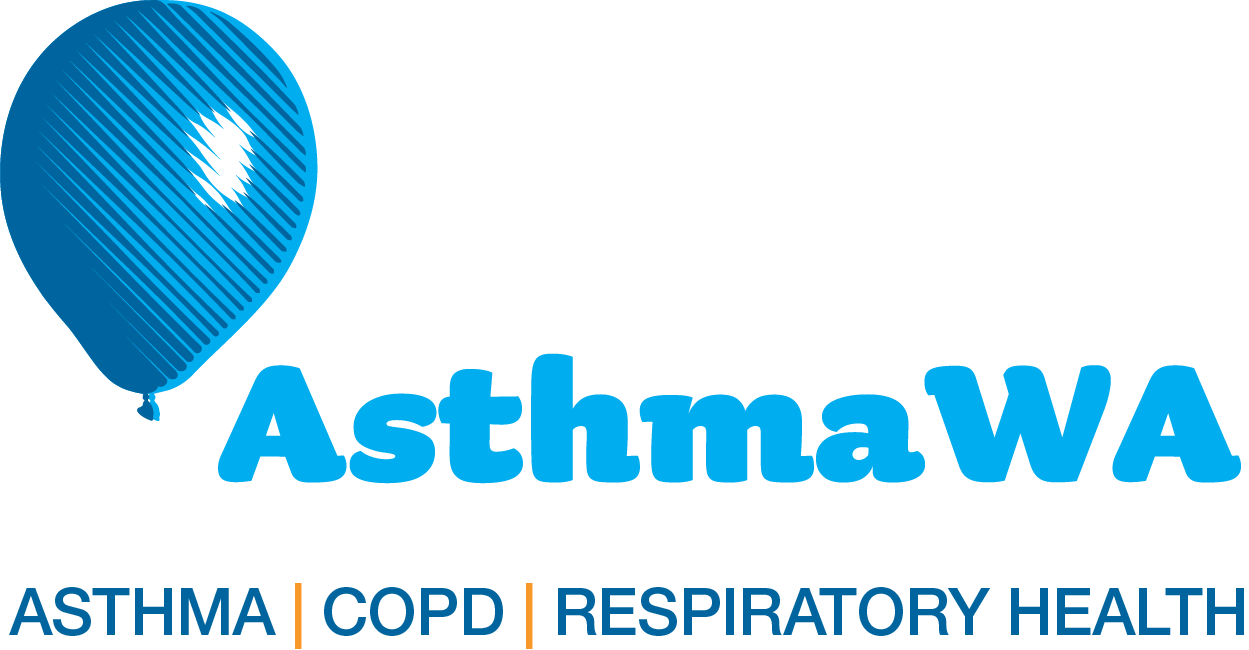Improved health outcomes through program for Chronic Obstructive Pulmonary Disease (COPD)
A community-based support service provided by Silverchain and Asthma WA has led to improved health outcomes for people with Chronic Obstructive Pulmonary Disease (COPD), with the long term aim of improving quality of life and reducing re-admissions and associated health care costs.
The service, which is offered to non-oxygen dependent COPD patients discharged from hospital, is funded by the WA Primary Health Alliance (WAPHA), made possible through funding provided by the Australian Government under the Primary Health Network Program
The joint COPD program was originally offered as a small trial before expanding across the Perth metropolitan region in July 2021.
A recent evaluation of the expanded service has shown that clients experienced reduced anxiety about their condition, as well as improving their overall knowledge about their condition and how to better self-manage it.
COPD is the fifth leading cause of death, the third leading specific cause of total disease burden[1] and the leading cause of potentially preventable hospitalisations for men[2]. The course of COPD is progressive and without optimal management, COPD impacts on daily living and quality of life. Health care costs for people with COPD increases with condition stage, symptom severity and exacerbation frequency[3], with patients often experiencing multiple re-admissions.
COPD is an umbrella term for a group of progressive lung diseases which include emphysema and chronic bronchitis. COPD causes narrowing of the airways in the lungs which makes it more difficult to breathe. There is currently no cure for COPD, however early diagnosis and treatment can help ease symptoms, lower the chance of complications and improve quality of life.
Silverchain Director, Clinical Operations Sharon Hearns said the COPD program by Silverchain and Asthma WA aimed to alter the burden of the disease, not only in terms of quality of life but also health costs.
“The review of our program has demonstrated a positive impact on anxiety, with the first assessment by Silverchain at the start of clients’ program journey showing 19% of clients were experiencing moderate anxiety while 12% reported severe anxiety,” Ms Hearns said.
“When clients were later assessed after receiving support from Silverchain and Asthma WA, only 10% reported moderate anxiety and 10% having severe anxiety. Not only did clients report reduced uncertainty, fear and anxiety following an exacerbation, they also reported reduced time in hospital and reduced deterioration of their health.
“These are all outcomes that not only improve quality of life for people with COPD, but also go a long way to reducing health costs,” Ms Hearns said.
Asthma WA General Manager, Health and Regional Services, Jenny Howson, said that in the long term, the program aimed to see changes in client behaviour that would ultimately result in improved self-management and quality of life, reduced unplanned hospital re-admissions and better connections of clients to primary care.
“Our joint program ensures that clients know how to recognise signs of escalating symptoms and what to do in those circumstances as part of their action plans and their self-management approach, as well as knowing how and when to access health support services if their condition deteriorates,” Ms Howson said.
Ms Howson said having better access to their COPD action plans and having support at home through the program made a considerable difference to people’s knowledge and confidence levels.
“Through education and support from the COPD program, our clients’ ‘good knowledge’ level of their condition increased from 53%, as a proportion of clients, to 73%,” she said.
Under the joint COPD program, clients who are referred to the COPD program are given three weeks of support by Silverchain once they are discharged from hospital. That support includes telephone consults and a home visit. Clients are then supported by Asthma WA for a further six months, which includes phone calls and home visits. Extended support can be provided if required.
Media Contact
Montana Waters | Senior Media Advisor
T 08 9208 8310 | E Montana.Waters@silverchain.org.au
About Silverchain
Silverchain is Australia’s leading in-home care specialist, providing health and aged care services to 105,000 clients a year. Silverchain has been trusted by Australians to deliver care that is differentiated by quality and safety for nearly 130 years. We provide complete in-home care services in Western Australia, South Australia, Victoria, Queensland and New South Wales, in partnership with our clients, as well as governments, primary health networks, local health districts, retirement communities, private companies, and hospitals and health services.
Our services comprise nursing, palliative care, home help and support services, hospital in the home, allied health services, and the provision of equipment and monitored personal alarms. We employ more than 4,400 people, including nurses, doctors, allied health, care experts, and a dedicated research and innovation division. Our aspiration is to create a better home care system for all Australians. For more information, visit www.silverchain.org.au
About Asthma WA
Asthma WA (formerly Asthma Foundation of WA) has been helping Western Australians breathe better for over 55 years. We specialise in respiratory conditions and provide individualised education and support for people with asthma and chronic obstructive pulmonary disease (COPD) and their carers, to improve health and wellbeing and decrease preventable emergency department presentations, hospitalisations and deaths.
We aim to reduce the health, social and economic impacts of asthma and COPD through better management of these conditions, keeping people well in the community. We also provide education and training in group settings for GPs, practice nurses, pharmacies, schools, sporting clubs, workplaces, child-care centres and prisons and advocate on behalf of our consumers to reduce complacency and stigma.
[1] AIHW, 2020a, Chronic Obstructive Pulmonary Disease. Accessed from https://www.aihw.gov.au/reports/chronic-respiratory-conditions/copd/contents/impact
[2] AIHW, 2020b, Disparities in potentially preventable hospitalisations across Australia, 2012-13 to 2017-18. Accessed from: https://www.aihw.gov.au/reports/primary-health-care/disparities-in-potentially-preventable-hospitalisations-australia/summary
[3] Ihenacho et al., 2020, Economic Burden of Chronic Obstructive Pulmonary Disease (COPD): A Systematic Literature Review. International journal of chronic obstructive pulmonary disease, 15, 439–460. https://doi.org/10.2147/COPD.S234942
